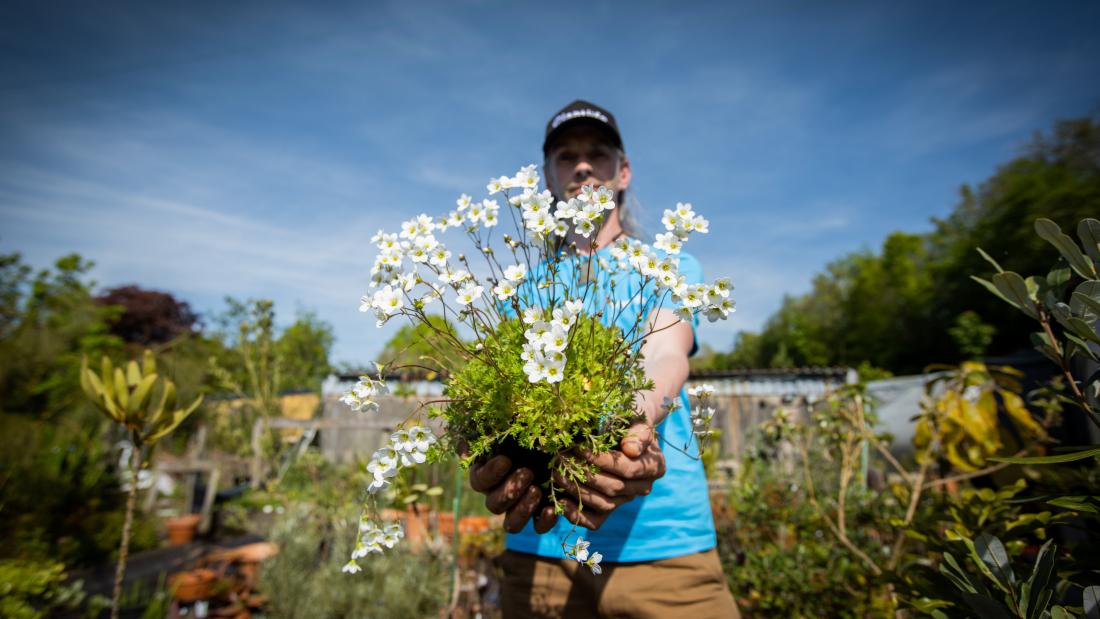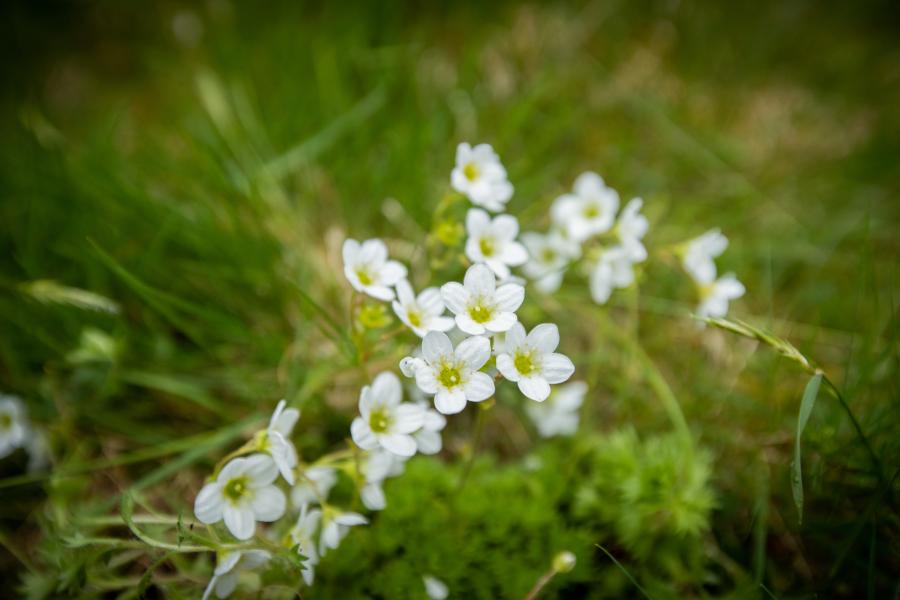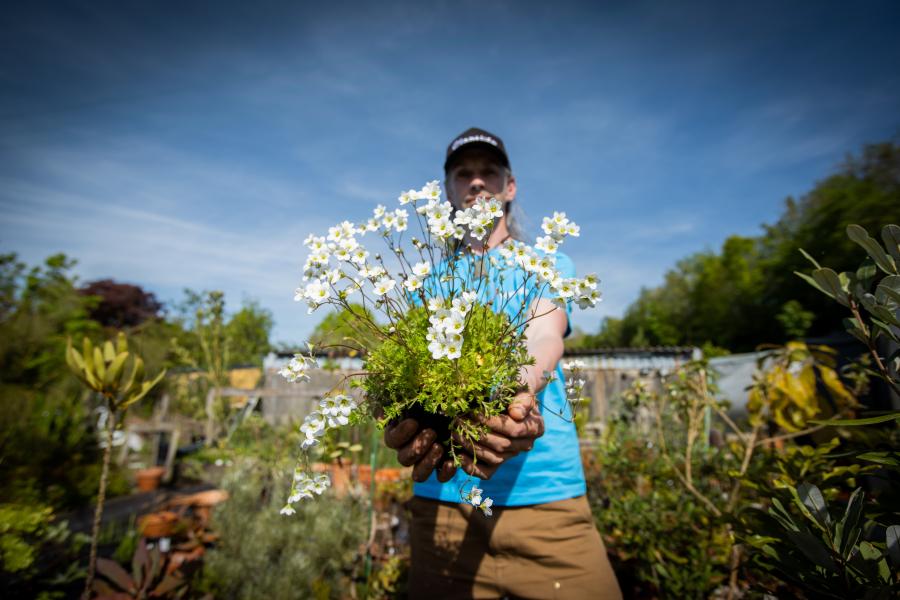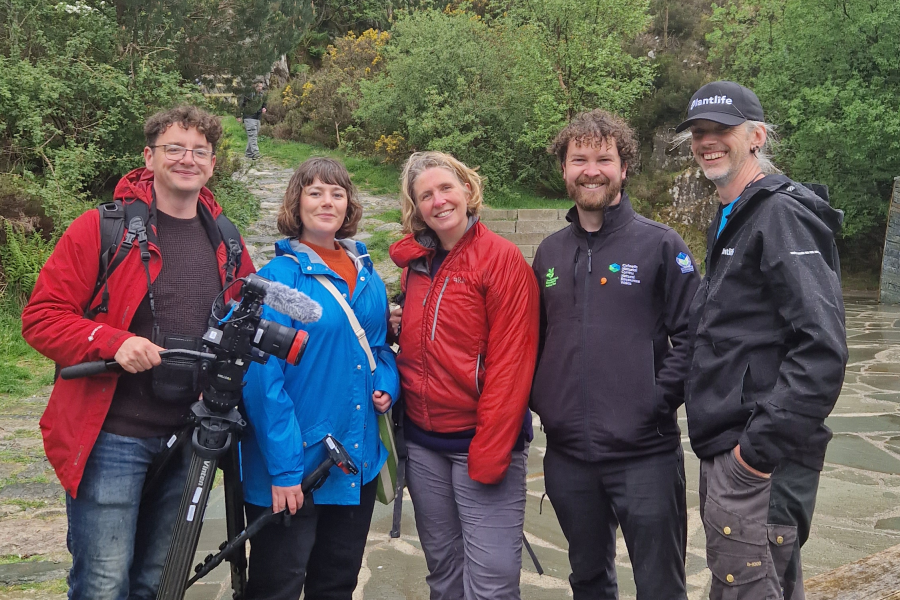It was a privilege to be there when the Rosey Saxifrage returned to the mountains of Snowdonia. Conservation is, of course, about a lot more than reintroduction of extinct species - most of our efforts focus on retaining habitats and ensuring there is space for nature to thrive.
“However, there is something special about putting back what has been lost. The UK has seen many successful reintroduction programmes including of red kites, beavers and ospreys. It’s wonderful that today a tiny plant is getting attention. Plants are often ignored in favour of superficially more charismatic species - though in this case, the Rosy Saxifrage is a very charismatic plant!
Robbie Blackhall-Miles said, “Successfully returning a lost species to the wild marks a special moment for nature recovery. Rosy Saxifrage’s sad demise was driven chiefly by plant collectors’ greed, so this project represents returning stolen jewels to their rightful place in the Welsh landscape. Each and every native wild plant contributes to the diversity and health of ecosystems and putting Rosy Saxifrage back where it belongs restores a lost balance.
“Rosy saxifrage and a fleet of other Arctic-alpine wild plants are particularly challenged by climate change driven by human activity, so it incumbent on us to care better for mountain habitats like Eryri.”
Julia Jones added, “I look forward to taking students up to Cwm Idwal to check on the progress of these beautiful plants. Bangor is the perfect place to study conservation and the natural world as we have such an incredible location between the mountains of Snowdonia and the Menai Straits. We absolutely make the most of this fantastic ‘outdoor classroom’ in our teaching.”
Read Plantlife’s full news story here








